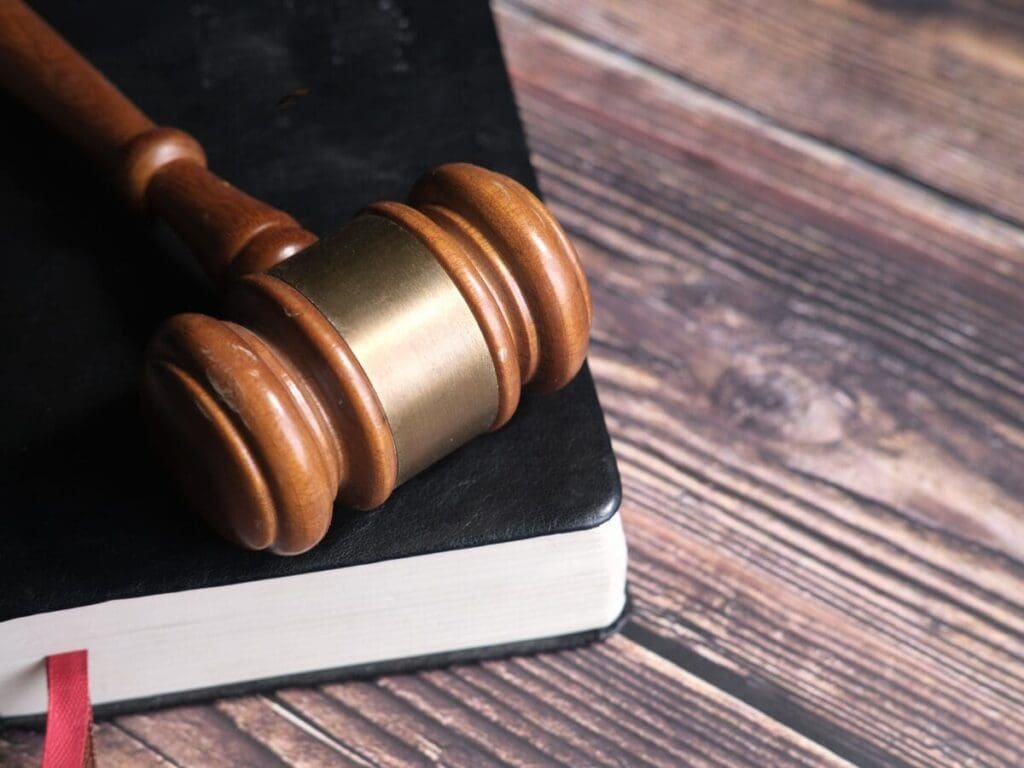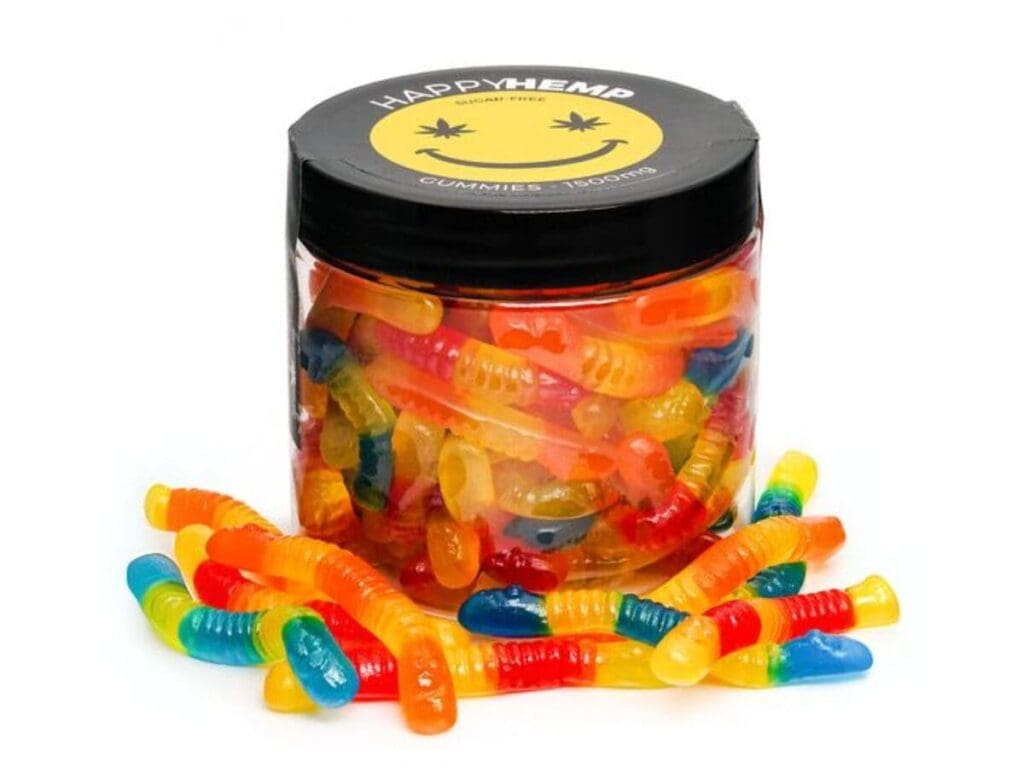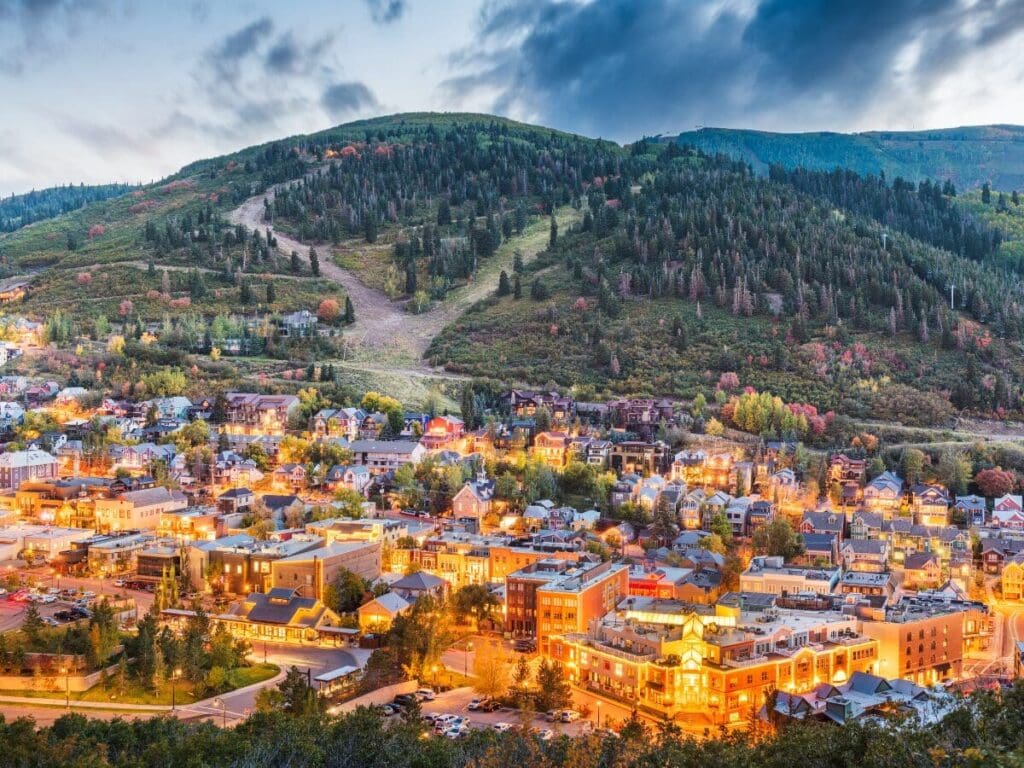Key Takeaways:
- Delta 8 THC’s Legal Status in Utah: Delta 8 THC is illegal in Utah due to the state’s strict cannabis laws, even though federal law permits its sale under certain conditions.
- Legal Alternatives to Delta 8 in Utah: Legal alternatives like CBD and CBG are available in Utah, offering non-psychoactive wellness benefits for those seeking cannabinoids.
- Future of Delta 8 Legalization in Utah: Future changes in Delta 8 THC legality in Utah may depend on federal policy updates, public demand, and advocacy from the hemp industry.
As Delta 9 THC remains illegal in many states, consumers are turning to Delta 8 THC as a legal alternative. However, in states like Utah, even Delta 8 THC exists in a gray area, leaving many confused about what’s allowed and what’s not. At Happy Hemp, we understand cannabinoids better than anyone. As a leading provider of premium Delta 8 THC products, we pride ourselves on offering safe, high-quality alternatives that meet all federal guidelines. Our team is dedicated to staying ahead of the latest legal developments in the cannabinoid industry, ensuring that our customers have the information and products they need to make informed decisions.
In this article, we’ll discuss the legality of Delta 8 THC in Utah and explore other legal alternatives available to consumers.
Delta 8 THC Vs. Delta 9 THC: What’s The Difference?
Delta 8 THC and Delta 9 THC are both cannabinoids found in cannabis plants, but they have some key differences that set them apart. Both compounds interact with the body’s endocannabinoid system and can produce psychoactive effects, but the intensity and legality of these effects vary.
Chemical Structure And Potency
Delta 8 THC and Delta 9 THC have similar chemical structures, but there’s a slight difference in the placement of a double bond between two carbon atoms. This minor variation is enough to make Delta 8 THC less potent than Delta 9 THC. As a result, users often report that Delta 8 provides a milder, more clear-headed high compared to the stronger psychoactive effects of Delta 9.
Psychoactive Effects
Delta 9 THC is the primary psychoactive component in marijuana, known for producing a stronger and sometimes more intense high. Delta 8 THC, on the other hand, is often described as having a smoother, less anxiety-inducing experience. This makes Delta 8 appealing to those who want the therapeutic benefits of THC without the overpowering effects associated with Delta 9.
At Happy Hemp, our Delta 8 gummies are crafted to provide a consistent, balanced high that you can enjoy without worry. Made with care and precision, our gummies offer the perfect way to experience Delta 8’s benefits. Try them today and discover the calm and relaxation you deserve!
Legal Status
The legal status of Delta 8 and Delta 9 THC differs significantly. Delta 9 THC is illegal at the federal level in the United States, except in states where cannabis has been legalized for medical or recreational use. Delta 8 THC, however, exists in a legal gray area due to its derivation from hemp, which was legalized under the 2018 Farm Bill. However, individual states, like Utah, may still impose restrictions on Delta 8 THC.
The Current Status Of Delta 8 Legality In Utah
The legal status of Delta 8 THC in Utah is complex due to both state and federal regulations. As of now, Delta 8 is considered illegal in Utah, primarily due to the state’s strict cannabis laws and its classification of certain cannabinoids.
Utah’s Controlled Substances Act
The state’s Controlled Substances Act classifies tetrahydrocannabinols (THC), including Delta 8, as a controlled substance. Even though Delta 8 THC is derived from hemp, which is legal under federal law, Utah law does not differentiate between hemp-derived Delta 8 and Delta 9 THC from marijuana. This means that any product containing Delta 8 THC is treated similarly to products containing Delta 9 THC and is therefore prohibited.
Medical Cannabis Exception
Although Utah has a medical cannabis program, Delta 8 THC is not included in the list of approved substances for medical use. The medical cannabis program allows qualified patients to use specific cannabis products, but these products are limited to those with lower THC content and exclude Delta 8 altogether. This means that, even for medical patients, Delta 8 THC remains inaccessible in Utah.
Enforcement And Penalties
Possession or sale of Delta 8 THC in Utah can result in legal penalties similar to those associated with marijuana. Individuals caught with Delta 8 products may face misdemeanor or felony charges, depending on the quantity and intent of use. Law enforcement in Utah enforces the ban on Delta 8 THC, making it risky for consumers and businesses to possess or sell these products within the state.
Federal And State Laws Governing Delta 8 THC
Delta 8 THC’s legality is shaped by a combination of federal and state laws, leading to varying regulations across the U.S. In Utah, the state’s stricter stance on cannabinoids has a significant influence, despite some federal leniency toward hemp-derived compounds like Delta 8. To fully understand how Delta 8 THC is regulated, it’s important to look at both federal guidelines and how Utah interprets them.
Federal Law: The 2018 Farm Bill
The passage of the 2018 Farm Bill marked a major shift in hemp regulation across the United States. The bill legalized the production and sale of hemp and its derivatives, including cannabinoids like CBD and Delta 8 THC, as long as the Delta 9 THC content remains below 0.3%. This opened the door for Delta 8 to be legally extracted from hemp, creating a new market for products containing this compound.
Utah’s Interpretation Of The Law
In Utah, despite the federal allowance for hemp-derived Delta 8 THC, the state has taken a stricter approach. Under Utah law, all forms of THC, including Delta 8, are considered controlled substances. The state does not distinguish between the sources of THC—whether from hemp or marijuana—thus making Delta 8 illegal.
State-Level Variations Across The U.S.
Other states have interpreted the federal guidelines differently, with some embracing the sale of Delta 8 THC and others implementing strict bans similar to Utah. States like Texas, Florida, and California have more lenient policies, allowing Delta 8 products to be sold in stores. However, Utah remains among the more conservative states where Delta 8 is treated with the same level of restriction as Delta 9.

Economic Implications Of Delta 8 In Utah
The legal restrictions on Delta 8 THC in Utah have a significant impact on the state’s economy, especially in relation to the cannabis and hemp industries. With Delta 8 gaining popularity nationwide for its milder psychoactive effects and accessibility, states that allow its sale and use have seen economic benefits. In contrast, Utah’s prohibition of Delta 8 has caused certain economic implications, particularly for local businesses and the overall market for cannabis-related products.
Impact On Local Businesses
In states where Delta 8 THC is legal, it has become a lucrative product for local hemp farmers, manufacturers, and retailers. However, in Utah, businesses that might otherwise benefit from this growing market are missing out on significant revenue. Retailers that could be selling Delta 8 products are instead forced to limit their inventory to CBD and other non-psychoactive compounds, restricting their potential market growth.
Consumer Demand And Revenue Loss
Despite Delta 8 being illegal in Utah, consumer demand for alternative cannabinoids like Delta 8 THC remains strong. Many consumers who are interested in Delta 8 products may turn to online vendors from states where the substance is legal. This results in revenue leaving Utah, as residents purchase from out-of-state suppliers instead of supporting local businesses. This cross-border economic activity not only impacts local retailers but also diminishes potential tax revenues for the state.
Potential For Growth If Legalized
The market for Delta 8 products is rapidly expanding, and Utah could capitalize on this trend by allowing local businesses to produce and sell these products. Legalization would also create new job opportunities in the hemp industry, from farming and manufacturing to retail. Additionally, tax revenue from the sale of Delta 8 products could contribute to state and local government budgets, as seen in states with legalized cannabis markets.
Possible Future Changes In Legislation
As the legal status of cannabis products changes across the United States, there is potential for changes in Delta 8 THC legislation in Utah. Although Utah currently prohibits Delta 8, cannabinoid regulation is constantly shifting as both consumers and lawmakers reconsider their positions. Several factors could influence future legal developments regarding Delta 8 THC in Utah.
Public Opinion And Demand
Public opinion plays a crucial role in shaping cannabis-related legislation. Over the years, there has been a gradual shift in attitudes toward cannabis and cannabinoids, including Delta 8 THC. As more people become familiar with the potential therapeutic benefits of cannabinoids and Delta 8 in particular, pressure from Utah residents could drive lawmakers to reconsider the current restrictions. If demand for legal Delta 8 products continues to grow, especially as other states adopt more lenient policies, it’s possible that Utah legislators may revisit the issue in the coming years.
Influence Of Federal Policy Changes
Changes at the federal level could have a significant impact on Utah’s stance regarding Delta 8 THC. If federal laws were to clarify or further regulate the legality of hemp-derived cannabinoids like Delta 8, Utah could follow suit. Additionally, federal guidance could address concerns about safety and manufacturing practices, potentially easing Utah’s strict stance.
Medical Cannabis Expansion
Utah’s existing medical cannabis program has paved the way for some level of cannabis acceptance, but the exclusion of Delta 8 THC highlights the state’s conservative approach to cannabinoids. However, as more studies emerge regarding the potential medical benefits of Delta 8, there could be future discussions about including Delta 8 THC within the medical cannabis framework. If patients begin advocating for the therapeutic use of Delta 8, this could spur changes in Utah’s legislation to allow for its controlled medical use.
Industry Advocacy
Hemp and cannabis industry advocates are likely to continue lobbying for the legalization of Delta 8 THC in Utah. Businesses that see the potential for growth and profit in the Delta 8 market may work to educate lawmakers about the benefits of legalizing the substance. Industry advocacy could focus on the economic benefits of legalizing Delta 8, including job creation, increased tax revenue, and support for local agriculture.
Legal Alternatives To Delta 8 THC In Utah
For those in Utah who are interested in cannabinoids but are unable to access Delta 8 THC due to its legal status, there are several legal alternatives. These alternatives offer some of the benefits of Delta 8 THC, including potential therapeutic effects, without violating state law. While they may not provide the same psychoactive experience, these options are accessible and legal in Utah.
- CBD (Cannabidiol): CBD is legal in Utah as long as it’s derived from hemp and contains less than 0.3% Delta 9 THC. It doesn’t produce psychoactive effects and is available in various forms such as oils, edibles, and creams.
- CBG (Cannabigerol): CBG, a non-psychoactive cannabinoid, is legal under Utah law and believed to have anti-inflammatory and neuroprotective properties. Though less common than CBD, it’s available in tinctures, capsules, and other wellness products.
- Hemp-Derived Products: Hemp oils, lotions, and dietary supplements rich in beneficial compounds like terpenes are legal in Utah. These products do not contain significant levels of THC and are widely available in health stores and online.
- Low-THC Medical Cannabis: Patients with qualifying medical conditions in Utah can access low-THC cannabis products through the state’s medical cannabis program. Although Delta 8 THC is not included, patients can still benefit from other regulated cannabis-derived compounds.
While Delta 8 THC may not be available, Utah residents still have access to a variety of legal cannabinoid alternatives that provide potential health benefits.

Final Thoughts
The legal status of Delta 8 THC in Utah remains a complex issue. While federal law has created some room for the sale and use of hemp-derived cannabinoids like Delta 8, Utah’s strict stance on THC has kept these products out of reach for residents. As the conversation around cannabis reform continues to develop, public opinion, federal guidance, and industry advocacy could all play a role in shaping the future of Delta 8 in the state.
For now, Utah residents interested in cannabinoids have access to a range of legal alternatives, including CBD, CBG, and other hemp-derived products. While these options do not replicate the psychoactive effects of Delta 8 THC, they offer potential wellness benefits within the boundaries of Utah’s laws.
As with any legal matter, staying informed and understanding both state and federal regulations is key. For those who want to see Delta 8 legalized in Utah, continuing to engage in the conversation and advocating for legislative change may help shape the future of cannabinoid use in the state.
Read also:
- How Long Do THC-Infused Drinks Last? Duration And Effects
- Delta 8 THC Flower: What You Need To Know
- Soaring with Delta 8: Can You Fly with It?
Frequently Asked Questions About Delta 8 Legality In Utah
Can I buy Delta 8 THC online in Utah?
No, it is illegal to purchase Delta 8 THC in Utah, whether online or from a physical retailer. Even though some online sellers may ship to Utah, it is against state law to possess or use Delta 8 THC.
What happens if I’m caught with Delta 8 THC in Utah?
If you are caught with Delta 8 THC in Utah, you could face criminal charges similar to those for marijuana possession, which may result in misdemeanor or felony penalties depending on the amount and intent of use.
Can I get a medical card for Delta 8 THC in Utah?
No, Utah’s medical cannabis program does not include Delta 8 THC. Only specific low-THC cannabis products are approved for medical use, and Delta 8 is not part of that list.
Can tourists bring Delta 8 THC into Utah?
No, tourists cannot legally bring Delta 8 THC into Utah. Possession of Delta 8 THC, regardless of its origin, is against Utah law and may result in legal penalties.
Can I fly with Delta 8 THC through Utah?
No, you cannot legally possess or transport Delta 8 THC through Utah, even when flying. Carrying Delta 8 THC through the state may result in criminal charges.
What are the penalties for selling Delta 8 THC in Utah?
Selling Delta 8 THC in Utah is illegal and can result in serious penalties, including criminal charges, fines, and potential imprisonment depending on the scale of the operation.
Sources:
- Abernethy, A. (2019). Hemp production and the 2018 farm bill. US Food and Drug Administration.
- Leas, E. C. (2021). The hemp loophole: a need to clarify the legality of delta-8-THC and other hemp-derived tetrahydrocannabinol compounds. American Journal of Public Health, 111(11), 1927-1931.
- Leas, E. C., Nobles, A. L., Shi, Y., & Hendrickson, E. (2022). Public interest in∆ 8-Tetrahydrocannabinol (delta-8-THC) increased in US states that restricted∆ 9-Tetrahydrocannabinol (delta-9-THC) use. International Journal of Drug Policy, 101, 103557.







